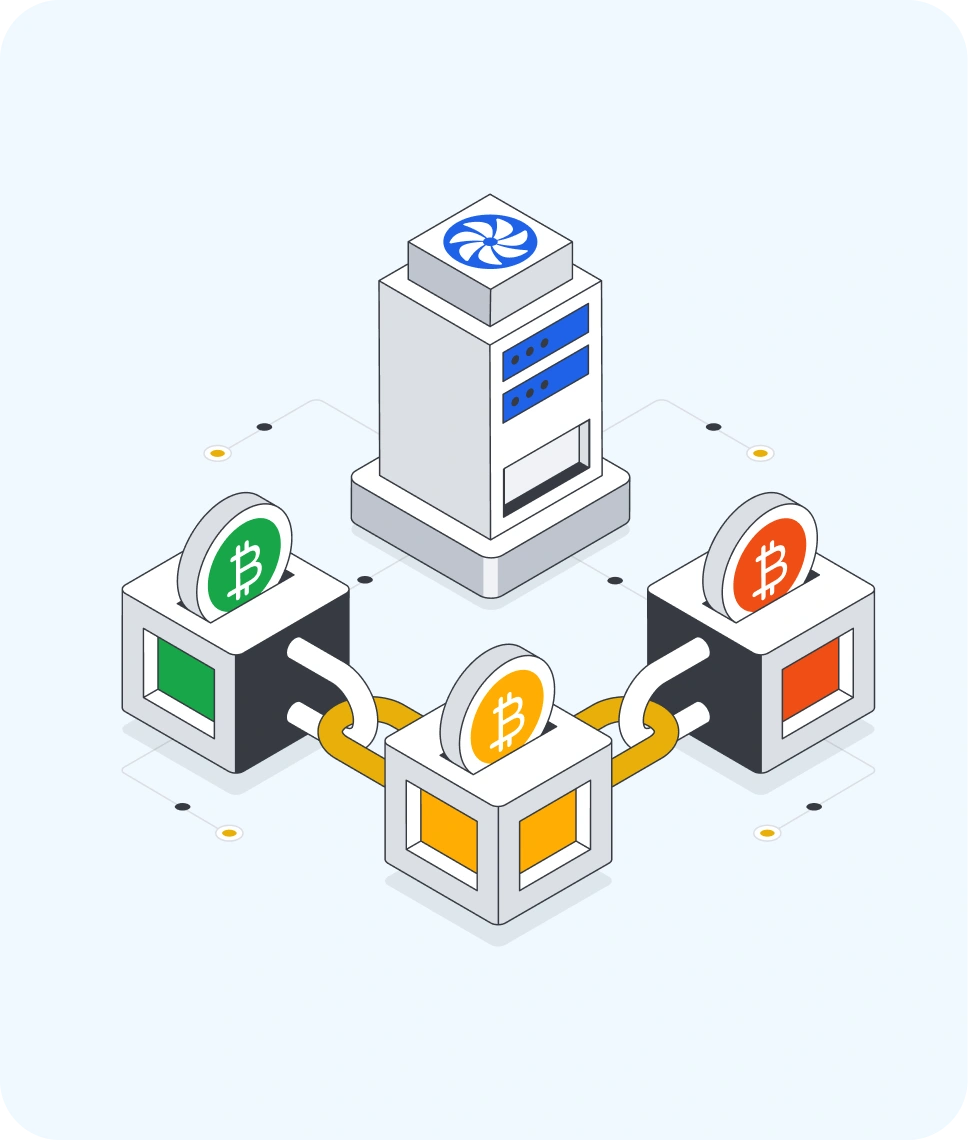Leading Healthcare App Development Company
We create a customized health care system with HIPAA -compliance, user -friendly interface and strong safety. Our apps increase the operation of patients and suppliers with comfortable, reliable and regulatory regulation on all platforms, efficient operation, efficient operation and empowerment for patients and suppliers.
Start NowLooking for a Secure Healthcare App Solution?
We’ll respond to you within 24 hours!
Hire a Leading Healthcare App Development Company
Itechnolabs Custom Healthcare App development services that combine strong security protocols to help HIPAA compliance technologies, spontaneous user experiences and suppliers, patients and medical organizations, which increase the health system’s distribution.

Custom Healthcare App Development Services
We offer full-cycle healthcare app development tailored to meet your specific business objectives, whether you're a hospital, clinic, telemedicine provider, or health tech startup.

HIPAA-Compliant Healthcare App Development
We build secure mobile and web apps that comply with global healthcare regulations like HIPAA, HL7, GDPR, and FHIR. Our team ensures data confidentiality, secure patient access, and medical record interoperability.

Telemedicine App Development
Enable remote consultations, video calling, secure document sharing, and prescription delivery through our custom telemedicine solutions designed for doctors and healthcare professionals.
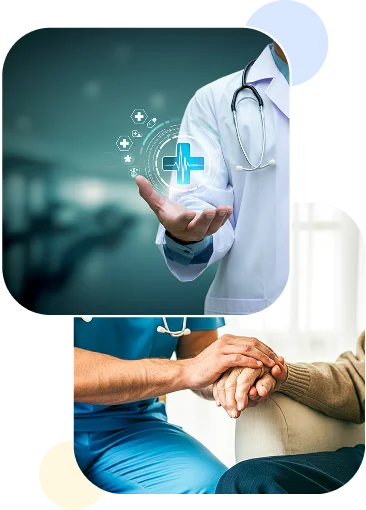
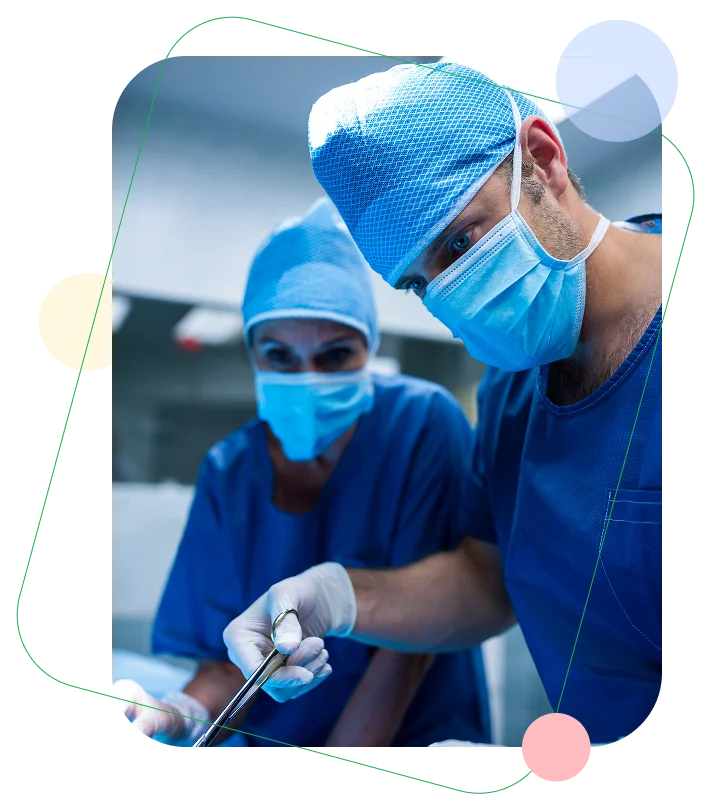

Healthcare App Interface Development
We design user-centric, intuitive UI/UX for healthcare mobile app development to simplify tasks like appointment scheduling, medication tracking, test result viewing, and doctor-patient communication.

Healthcare Wearable App Development
Leverage real-time health data from wearables to monitor vitals, fitness, sleep, and chronic conditions. Our apps sync with devices like smartwatches, fitness bands, and medical sensors.

EMR & EHR Integration Services
We develop solutions that integrate seamlessly with existing Electronic Medical Records (EMR) and Electronic Health Records (EHR) systems for smooth patient data management and continuity of care.
AI-Powered Healthcare App Development
Empower your healthcare solution with AI-driven features and smart algorithms to elevate diagnostic accuracy, personalize patient care, and optimize overall clinical decision-making and performance.
Our Healthcare App Development Company Offers Tailored Digital Health Solutions
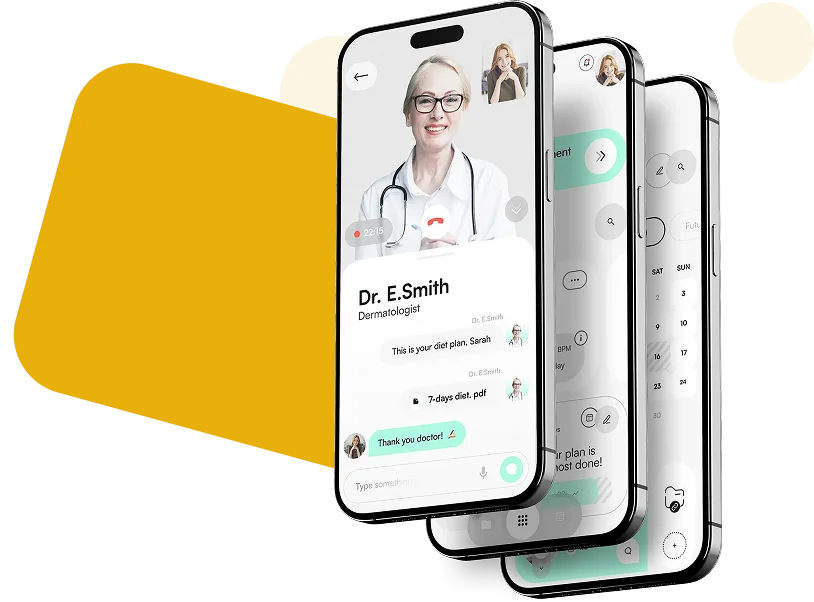

Doctor Appointment Booking Apps
As a leading health care app development company, we create functional apps that allow patients to order real-time medical appointments, get automated reminders, check the availability of a physician, and our customized health care apps increase the patient's convenience with development services and make clinic operations.

Pharmacy & Medicine Delivery Apps
Our custom healthcare app development services include secure and scalable pharmacy apps that allow users to upload prescriptions, place orders, track deliveries, and make payments online. With features like digital prescriptions and doorstep delivery, we simplify healthcare access through modern medical app development solutions.

Remote Patient Monitoring (RPM)
Our health services mobile app Development Services provides suppliers in real -time monitoring using portable and blue -stabled equipment. Track the important as heart rate, glucose, oxygen level and more. These solutions improve chronic care management, distribute notifications in time and support preventive care through advanced customized health services app development services.

Healthcare CRM Solutions
Increase the patient's involvement with strong medical app development which includes integrated CRM systems. Our apps manage appointments, automate everyone through a centralized platform, track interactions and monitor the performance of the campaign. As a reliable health system's app development company, we ensure streamlined communication and operating efficiency.

mHealth Solutions for Patients
We build smart healthcare app development solutions that help users track symptoms, manage medications, monitor fitness goals, and follow diet plans. Our custom healthcare app development services encourage healthier lifestyles and support patient wellness through personalized digital tools that increase engagement and improve long-term care outcomes.

EMR & EHR Integration
Our customized health services -app development services include seamless EMR and EHR integration, which is able to safely now, update and manage the clinics. These health care development solutions improve the accuracy of the data, interoperability and care coordination-you distribute the skills of high-quality patients with high quality connected, connected.
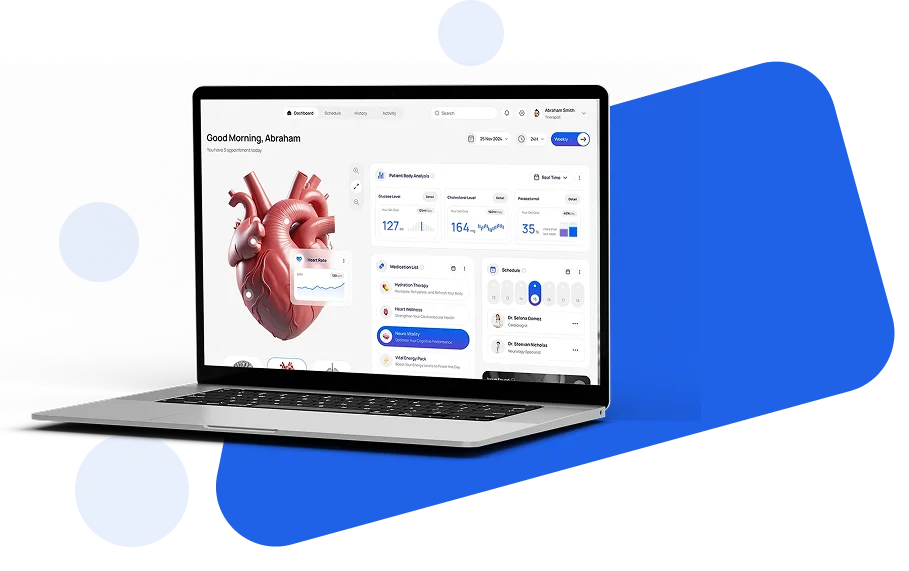
Custom Healthcare App Features We Build
We deliver feature-rich custom healthcare app development services with advanced functionalities like real-time alerts, secure video calling, geolocation, multi-language support, cloud sync, and role-based access—ensuring seamless communication, improved care delivery, and enhanced user experience across all healthcare touchpoints.

Real-time Notifications & Alerts
Keep patients and suppliers informed with real -time spush notifications for reminders of appointments, drug programs, health updates and emergency alerts. It ensures timely communication and increases the engagement through active, user -specific notifications.

In-App Chat & Video Calling
Enable safe communication between doctors and patients with integrated chat and video calls. HIPAA compliance and support all real -time consultation, follow -up and distance care while maintaining an intuitive user experience.

Geolocation for Nearby Clinics
Let users detect hospitals, clinics, pharmacies and laboratories nearby with the underlying GPS functionality. Improve the patient's convenience by providing accessibility of directional directions, approximate travel time and agreement in nearby medical facilities.

Multi-language Support
Break the language barriers with multilingual interfaces for global audiences. Increase access and praise by allowing patients and health professionals to interact in their favorite language, improve understanding and satisfaction.

Role-Based Access Control
Provide data protection with different users, patients, doctors, gratitude and customized access levels for employees. Roll -based access ensures that users only see relevant information, support compliance, privacy and even app management.

Cloud Integration for Data Sync
Enable real -time data synchronization in devices and platforms through safe cloud integration. Anytime, anywhere, anywhere, anytime, anytime, improves access, backup and medical records, ensures performance and data availability.
We Ensure Your Compliance With PCI & EMV
iTechnolabs experts ensure your software complies with consumer protection standards including Payment Card Industry Data Security Standard (PCI-DSS), Payment Application Data Security Standard (PA-DSS), EMV, Check-21, and other payment standards.
Why Choose iTechnolabs as Your Healthcare App Development Company?
Itechnolabs offers end-to-end health care app development services with healthcare app development, secure distribution, patient-focused design and proven expertise in global compliance. Our flexible commitment models and in-depth knowledge of scalable, user-friendly and regulatory-taiyar solutions ensure that it is prepared to meet the needs of diverse health services.

Expertise in Medical App Development

Proven Healthcare App Deployment Experience

End-to-End Product Lifecycle Support

Dedicated UI/UX Designers for Patient-Centric Apps

Flexible Engagement & Hiring Models

Compliance with Global Healthcare Standards
Frequently Asked Questions
What services do your health care app development company provide?
As a leading health care app development company, Itechnolab's end-to-end solutions include Itechnolab's telemedicine app development, EMR/EHR integration, portable health apps, external patient surveillance and mobile health system's CRM system. We also ensure that HIPAA and GDPR SAMPS.
How do you ensure data security in medical app development services?
We follow strict safety standards including HIPAA, HL7, FHIR and GDPR Sami. Our medical app development process includes data encryption, secure API, user approval and role -based access control to ensure complete patient data protection.
Can you offer customized health care app development services to my needs?
Yes, we are specialized in your unique workflow, target group and government requirements in customized health services app development services. Whether you are a hospital, clinic or start -up, we only provide scalable solutions for you.
Do you develop across platforms health care mobile apps?
Absolutely. We create safe and spontaneous health care development solutions for iOS, Android and hybrid platforms, which use reactions native and vibrant to ensure frequent performance and user experience.
How long does it take to develop a mobile app for the health care system?
The timeline depends on the complexity, features and compliance requirements of the app. On average, a standard health service takes app 10-16 weeks. For advanced features such as AI diagnostics or EHR integration, it may take longer. We provide detailed timelines after initial consultation.
Have a healthcare app idea? Let’s build it!
We usually respond within 24 hours - your healthcare innovation starts hereBuild a Future-Ready Healthcare App with iTechnolabs
Custom Healthcare App Development Services that Transform Patient Care
Our team creates a safe, scalable and intuitive medical app for hospitals, clinics and start -up. Whether you are launching a telemedicine platform or training track, we ensure compliance with HIPAA, HL7 and Global Healthcare Standards.
Ready to digitize your healthcare business?










